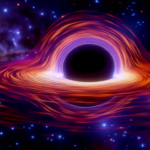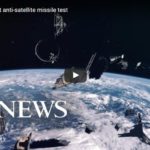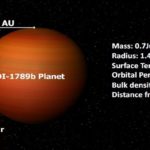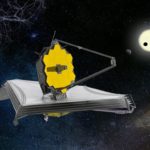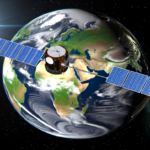The contributions of indigenous people to the American society are not widely published and very few people are familiar with individual accomplishments. Even when we talk about the native inhabitants of these lands, we tend to focus on their history and not on their present day lives. November is the month when we celebrate their […]
science
"Science is the the intellectual and practical activity encompassing the systematic study of the structure and behavior of the physical and natural world through observation and experiment." - Definition
Interest in the field of science that may have something to do with Taming Gravity!
Event Horizons: Venturing Beyond the Edge of Black Holes
Introduction to Black Holes and Event Horizons What is a Black Hole? A black hole is a region in space where the gravitational pull is so intense that nothing, not even light, can escape from it. This phenomenon occurs when a massive star collapses under its own gravity, compressing its mass into an infinitely […]
“Alien” invasions and the need for planetary biosecurity
When we explore space, we expose ourselves and our planet to the risk of an invasion. However, when we talk about this risk, we are not really thinking about some alien life form attacking humans. We are considering contamination on a microbiological level that can threaten our species, both animal and plants. The danger is […]
Wormholes could serve as stable conduits through space after all
At the basic level, the concept of a wormhole sounds simple enough. You need to connect a couple of black holes and the connection between them is a tunnel which can serve as a passageway for travelers through space. The idea itself is not new at all, and even Einstein considered its theoretical foundation. Recently, […]
Michio Kaku talks about UFOs and aliens, compares humans with squirrels – IBTimes India
Kaku is a known name among physicist and one can say that he even a certain celebrity status thanks to his willingness to tackle the subject of unidentified objects spotted in the sky. Recent declassified report by the American government sparked a renewed interest in this phenomenon, and it is not surprising that this famous […]
Russian anti-satellite missile test was the first of its kind
The latest test conduct by Russia aimed at destroying satellites marked an important point in the series of tests. This is the first time that such test was a complete success, resulting in destruction of one of the Russia’s own satellites. Concurrently, Russians also deployed technology that does not result in destruction of intended target. […]
ISRO scientists discover star-planet bigger than Jupiter
Mount Abu, in India, is the site where a new exoplanet has been sighted. HD 82139 is the name of the exciting new discovery. More than 700 light years distant from our Earth, HD 82139 is huge. It’s mass is equal to 1.5 times the size of our own yellow dwarf star/sun. Data shows that […]
Entangled in Space: The Promising Intersection of Quantum Computing and Astrophysics
Introduction Overview of Quantum Computing and Astrophysics Quantum computing and astrophysics are two of the most groundbreaking fields in modern science. Quantum computing leverages the principles of quantum mechanics to process information in ways that classical computers cannot. This involves phenomena such as superposition, where quantum bits (qubits) can exist in multiple states simultaneously, […]
A new window to the early universe (and aliens?)
The James Webb telescope has had many setbacks and issues, but now it is finally completed and ready to look at deep space. There are two very big mission that the James Webb telescope will have to do. The first one is to look at infrared information taken from various stars and planets. The second […]
Next-Gen Satellites: How They’re Shaping Our Understanding of Space
Introduction to Next-Gen Satellites Definition and Overview Next-generation satellites, often referred to as “next-gen satellites,” represent the cutting edge of space technology. These advanced satellites are designed to be more efficient, versatile, and capable than their predecessors. They encompass a wide range of types, including miniaturized CubeSats, large communication satellites, and sophisticated scientific instruments. […]


